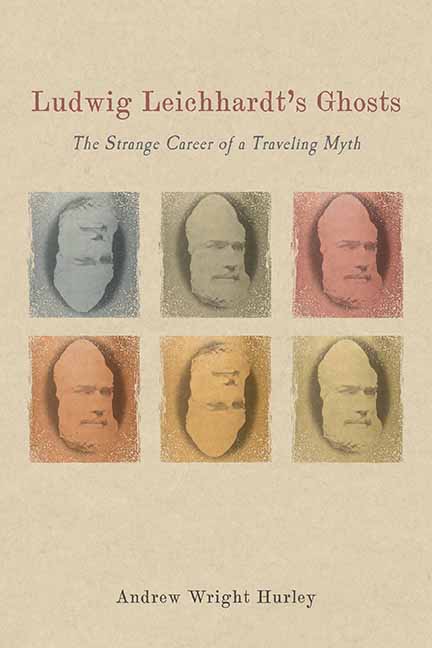Book contents
- Frontmatter
- Dedication
- Contents
- List of Illustrations
- Acknowledgments
- Introduction
- Part I Colonial Entanglements
- 1 Discovering, Mourning, and Honoring Leichhardt between Australia and German-Speaking Europe, 1848–1858
- 2 Ferdinand Mueller, the Ladies Committee, and German-Australian Seekers of Leichhardt
- 3 Taking Leichhardt Home to Germany with Georg Neumayer
- 4 Uneasily Approaching the Centenary
- Part II Colonial Memories
- 5 An Interwar Interregnum, or Finding Leichhardt as a “Friend of the Aborigine”?
- 6 Nazi Leichhardt
- 7 Leichhardt the Cold Warrior
- 8 Leichhardt Explodes, with No End in Sight (including a concluding passage “The Ghost of a Chance”)
- Notes
- Works Cited
- Index
7 - Leichhardt the Cold Warrior
Published online by Cambridge University Press: 20 August 2020
- Frontmatter
- Dedication
- Contents
- List of Illustrations
- Acknowledgments
- Introduction
- Part I Colonial Entanglements
- 1 Discovering, Mourning, and Honoring Leichhardt between Australia and German-Speaking Europe, 1848–1858
- 2 Ferdinand Mueller, the Ladies Committee, and German-Australian Seekers of Leichhardt
- 3 Taking Leichhardt Home to Germany with Georg Neumayer
- 4 Uneasily Approaching the Centenary
- Part II Colonial Memories
- 5 An Interwar Interregnum, or Finding Leichhardt as a “Friend of the Aborigine”?
- 6 Nazi Leichhardt
- 7 Leichhardt the Cold Warrior
- 8 Leichhardt Explodes, with No End in Sight (including a concluding passage “The Ghost of a Chance”)
- Notes
- Works Cited
- Index
Summary
IN THE LATE 1980S, the lost and maligned Ludwig Leichhardt returned to the eastern seaboard of Australia, not once but at least six times over. As a character in the opera version of Patrick White's Voss. As a recuperated subject in a new biography by the literary scholar and editor Colin Roderick. At the other end of the culture spectrum, as the namesake of new model of road train that rumbled down roads like the Leichhardt Highway, a route that intersects with the Port Essington track. But he also appeared in Sydney via an odder, cold war pathway: His doppelgänger great-great-grandnephew, Ludwig Leichhardt Jr., traveled from East Germany to participate in a conference; the GDR's Liga für Völkerfreundschaft (Peoples’ Friendship League) gave its bas-relief to the Sydney Municipality of Leichhardt; and the East German state also presented Australia with a bronze bust, for which Ludwig Jr. had modeled, as a bicentennial gift. This chapter works up to contemplating that bust. If, as I suggested in chapter 1, the bust can be an uncanny, unsettling art form, this one challenges us to probe the meanings invested in Leichhardt in cold war Germany and in Australia. As someone officially recovered as a proto-socialist in East Germany, but who also served as a locus for grassroots identification that could be at odds with the state's vision, and who was subject to a competing national claim in West Germany. As someone who had been ousted from historical and literary narratives of the Australian nation, or who had figured as a failure—sometimes an ambiguous one—but who returned, on cue, for the bicentennial of European settlement. And as a strange international political gift that signified another sort of present absence, both disavowing and emphasizing the Indigenous experience of colonization.
Despite a blip represented by commemoration of the centenary of the Port Essington expedition in 1945—among other things, the Royal Geographical Society of Queensland marked the event with a plaque, and a first day cover was released for philatelists—the cold war era began inauspiciously for Leichhardt, both in Australia and in Germany. In Australia, thanks to Alec Chisholm's Strange New World, a negative image of the explorer that further removed him from “the ethos of mateship and hard-bitten, practical knowledge” was consolidating.
- Type
- Chapter
- Information
- Ludwig Leichhardt's GhostsThe Strange Career of a Traveling Myth, pp. 164 - 194Publisher: Boydell & BrewerPrint publication year: 2018



